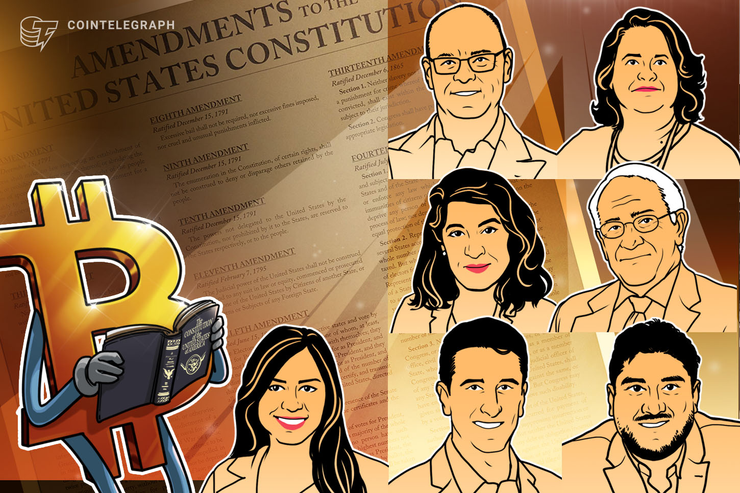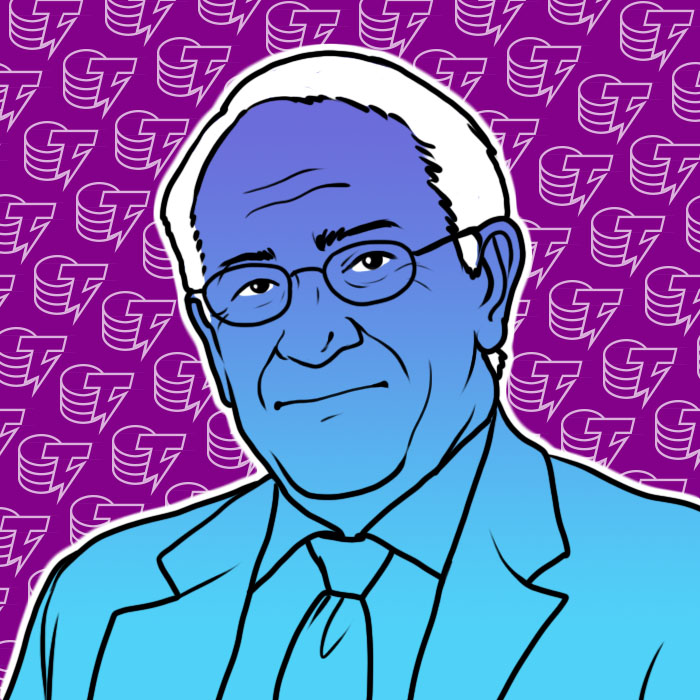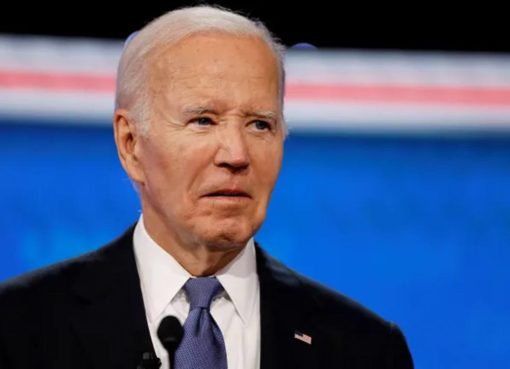There is a concept that exists in the crypto space that effectively states: Bitcoin (BTC) is code, code is speech and speech is protected under United States law. We asked legal experts in digital rights, the First Amendment and crypto to comment on the statement.
The claims are based on arguments from before the days of Bitcoin, which posit software as free speech, and thus state that it should be protected by the First Amendment of the U.S. constitution. The topic was evidently first brought to public attention back in 1999, when digital publisher Eric Corley went to court against Universal City Studios Inc. for publishing source code that decodes DVDs.
Referring to that case in 2001, Jon O. Newman, a circuit judge of the U.S. Court of Appeals for the Second Circuit, stated: “When the Framers of the First Amendment prohibited Congress from making any law ‘abridging the freedom of speech,’ they were not thinking about computers, computer programs, or the Internet.”
However, Neil Richards, one of the world’s leading experts in privacy and information law, as well as freedom of expression, argued in 2016 that: “Code = Speech is a fallacy because it would needlessly treat writing the code for a malicious virus as equivalent to writing an editorial in the New York Times,” adding that it is simply wrong.
Could the U.S.’s First Amendment regulate the legality of Bitcoin as free speech?
Lata Nott, Executive director, First Amendment Center Freedom Forum Institute
Although some courts have recognized code as speech, the Supreme Court hasn’t weighed in on this, so I wouldn’t call this a settled area of law. Personally, I think that code can be used to express and communicate ideas, and therefore can be viewed as a form of speech. But whether that speech is protected by the First Amendment is a different question. Not every type of speech is. For example, if you threaten someone’s life, or hire a hitman, you are certainly engaging in the act of speech, but the First Amendment won’t protect it. There are times when speech becomes conduct — when it’s more than just an expression of an idea, but constitutes an action — and that’s usually when the government can regulate it.
Using code to create a video game could be considered an act of expression protected by the First Amendment. Using code to launch denial of service attacks probably wouldn’t be. Using the blockchain to donate money to a political cause could be protected by the First Amendment, but using it to implement a smart contract might not be.
Alex Abdo, litigation director at the Knight First Amendment Institute at Columbia University
Is Bitcoin “speech” within the meaning of the First Amendment? Probably not in the way that some appear to be arguing.
The argument is that because code is speech, and because Bitcoin is code, Bitcoin is speech. The problem with this argument is that code is only sometimes protected from regulation as free speech — namely, when the regulation affects the use of code as a form of expression. But code generally isn’t protected from regulation that targets its use as a machine.
For example, Congress generally cannot prevent computer scientists from exchanging code to express their algorithmic ideas, but Congress can regulate the maximum speed of cars even if doing so requires carmakers to change the code used to set that speed.
Bitcoin is made up of ones and zeros, but those bits generally are not expressive, except in the way that normal currency is. For that reason, Congress very likely can regulate Bitcoin in the way it regulates any other currency — by imposing financial regulations and the like — so long as it does not violate the protections recognized for political contributions and expenditures.
In short, the fact that Bitcoin is made up of ones and zeros does not on its own imbue it with the expressive character necessary for it to be protected as free speech.
Sheila Warren, portfolio head, blockchain and distributed ledger technology, World Economic Forum
Leaving IP protections for code and their First Amendment implications aside, the really fascinating question is whether anonymous payments should be protected under free speech doctrine.
There’s a pretty robust history in the United States of prosecuting payments systems, going back in recent times to the hawala prosecutions after the Patriot Act was passed and on to Liberty Reserve.
In a post-Citizens United world, however, we’ve pretty much decided (or, SCOTUS has decided) that money is essential to speech. And there’s no question that the giving of money is a critical element of political participation, as established in 1976 in Buckley v. Valeo. But do we really want a society where we sanction the even more anonymous funding of politics?
Robert Corn-Revere, partner at Davis Wright Tremaine, LLP
The syllogism is tempting: code is speech; speech is protected by the U.S. Constitution; therefore, blockchain is protected by the First Amendment.
But so far there is no clear answer for how far U.S. courts will go in accepting this logic. This is because it ties into a longstanding debate over First Amendment protection for speech versus action, and this can get complicated when the two overlap in the form of “communicative conduct” (such as burning a draft card or a flag in protest).
The more code is deemed “functional,” the more those seeking to regulate it will argue it falls on the “conduct” side of the line. The first cases to test the “code as speech” theory had to do with cryptographic source code, the function of which is to enable confidential or anonymous speech — which itself is something the First Amendment protects. It remains to be seen whether courts will accept the same argument for cryptocurrency.
With a history tied to Silk Road and countless cryptocurrencies that are struggling with adoption and volatility, blockchain technology faces challenges of interoperability, scaling, perception and use cases.
There’s also an underlying issue with data privacy — we don’t know who we’re interacting with online. When there is an inability to prove who you are, it creates a ripple effect, leaving a wake of disinformation and distrust.
Our digital, modern world has brought these trust gaps to light. Raised in South Africa during apartheid, I was born without voting rights. So, election fairness hits close to home for me, especially linked to identity.
To unshackle ourselves from old systems based on disinformation, we must foster transparency and trust, and that evolves from allowing people to better control their personal data, through digital identities and zero knowledge proofs.
This is also good for business. Not only does protecting data privacy help reduce fraud, it also cultivates brand trust. I’m a firm supporter of First Amendment rights, and I also believe we, as technologists, should be putting our efforts into creating solutions that enable trust and can withstand the test of time.
Carol Goforth, Clayton N. Little professor of law at the University of Arkansas, former Arkansas Bar Foundation professor of law
While I am not a constitutional law scholar, it is my opinion that there is merit to the statement, although it probably does not mean what the author hopes. Commercial speech is absolutely protected under the First Amendment, and I am happy to assume that code being put out by crypto developers and entrepreneurs could fit within the scope of that rule.
However, this does not mean that there is an absolute right to release and discuss such code free of regulation. In very general terms, commercial speech that is false, misleading, or relates to illegal activity (such as money laundering, or the funding of criminal enterprises, or with the purpose of defrauding potential purchasers), is not really protected by the First Amendment because there is no legitimate interest in providing listeners with that kind of information.
Thus, when an agency (like FinCEN or the SEC) imposes regulations and requirements relative to that coding and statements concerning it, they are likely to be advancing a significant public interest and not infringing on First Amendment rights. First Amendment protection has never been a guarantee that you can say anything you want, at any time, without consequences.
Mark A. Lemley, William H. Neukom professor at Stanford Law School, director of the Stanford Program in Law, Science and Technology
While software can be expressive, and is sometimes protected as speech, it can also function, so it is properly subject to significantly more regulation than true speech.
Regulation of cryptocurrencies as currencies or securities aren’t regulating them for their expressive content but for their function.
The First Amendment won’t block that regulation, any more than it would protect a site that posted hacked passwords. The passwords are speech, but speaking isn’t what is being regulated.









